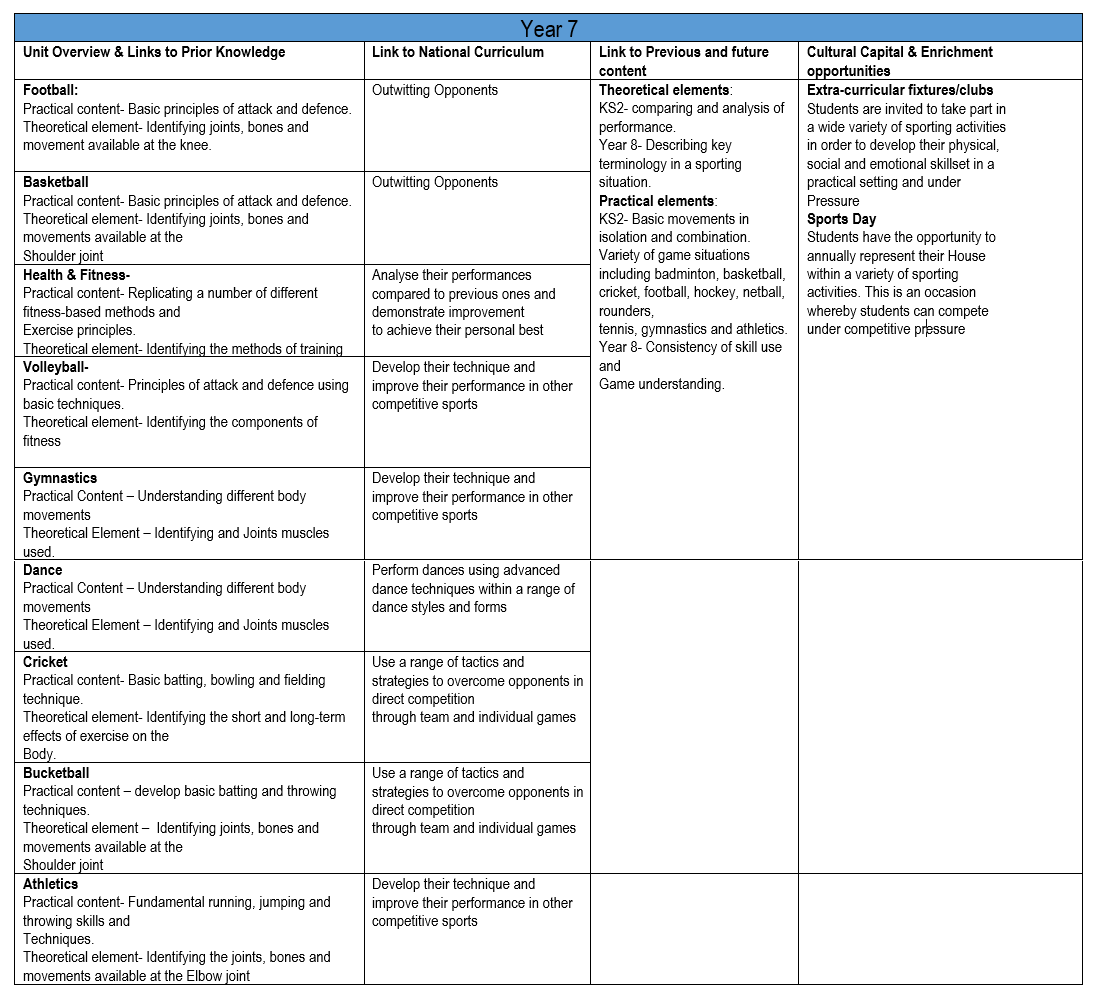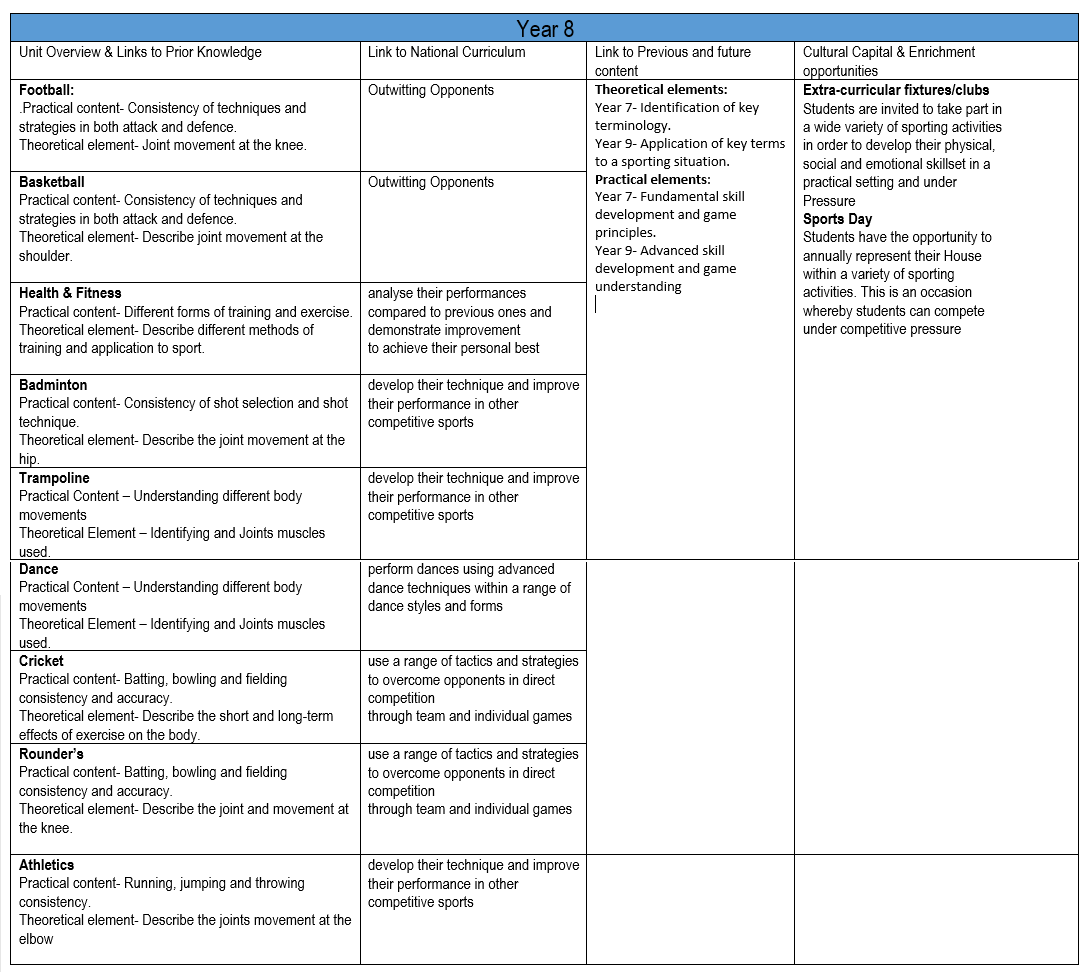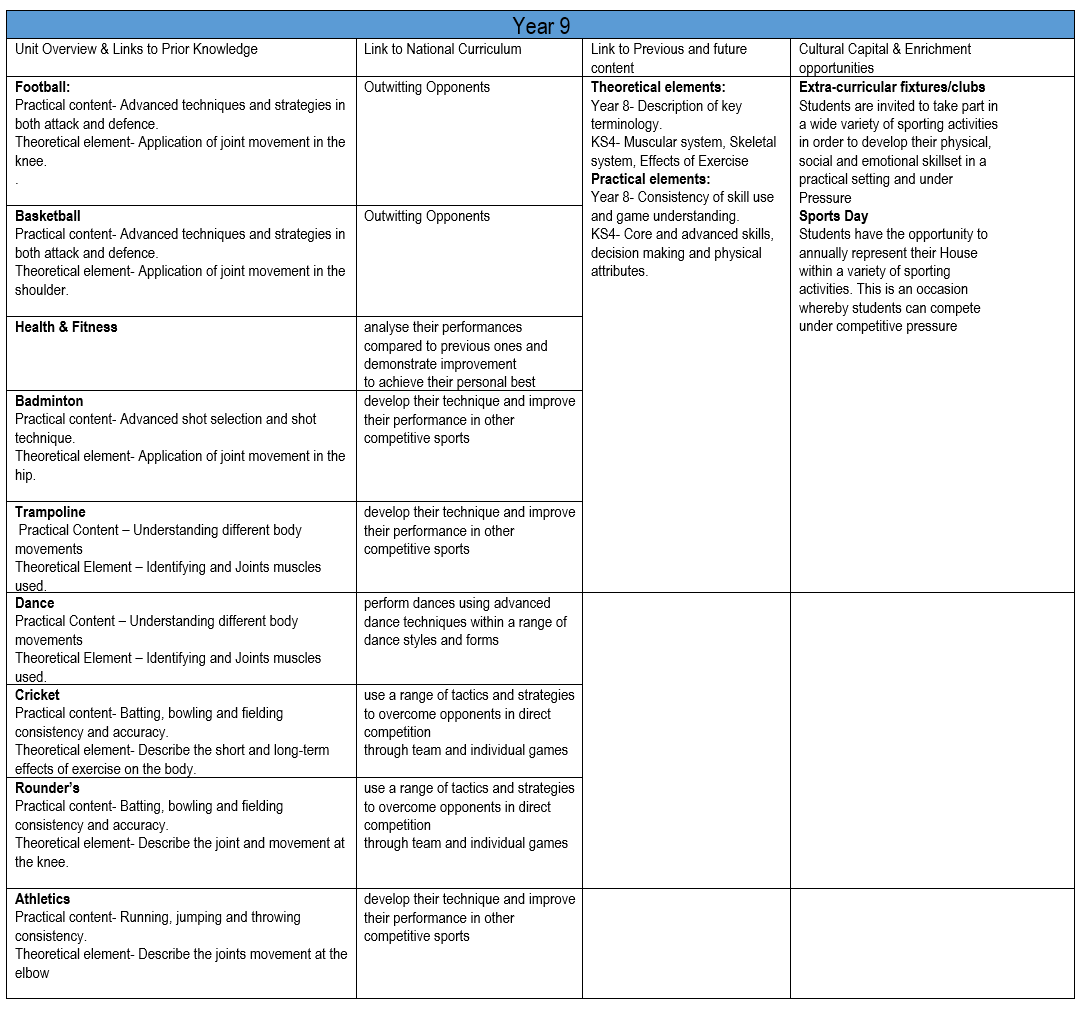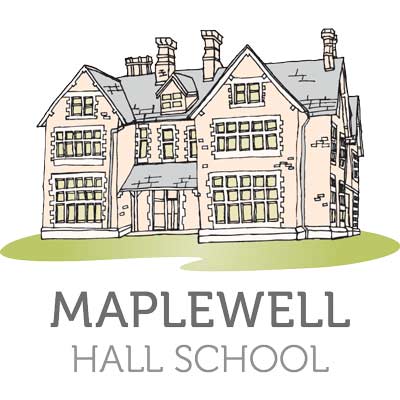PE Curriculum Introduction
At Maplewell Hall School, our Physical Education department are determined to equip all learners with the knowledge, skills and values needed in order to develop and maintain their physical performance. We understand and are determined to ensure that all students develop beyond merely their practical ability and become effective leaders and confident communicators.
All students will receive two one-hour lessons of Physical Education per week, with this increasing to 3 lessons at KS4 if they choose PE as an option. Within the KS3 curriculum, all students have the opportunity to gain and develop a basic level of practical core and advanced skills across a variety of different sports and/or activities. At KS4 students have the option of taking PE as an option and competing the Cambridge national level1/ level 2 award. Within Physical Education, we truly believe that building on the physical and theoretical principles of sport and activity is beneficial to learners and will aid in the development of further sporting athletes and professionals.

Invasion Games - Invasion games are games in which the aim is to invade an opponent's territory and score a goal or point. These are typically fast-paced games that need teamwork in order to control the ball, keep possession, move into a scoring position, and prevent the opposition from scoring. Examples may include Football, Basketball, Netball, Hockey.
Health and fitness - Students will be able to perform an extensive range of cardiovascular and muscular endurance exercises with considerable control, precision and fluency. Being able to design and perform a creative personal exercise plan independently, applying knowledge of muscles, components of fitness and principles of training, justifying the purpose. Students will also have chance to develop confidence and learn how to use gym equipment.
Net/wall games - Net/wall games are activities in which players send an object towards a court or target area that an opponent is defending. Some examples include badminton, table tennis, and volleyball.
Gymnastics - Gymnastics is a type of sport that includes physical exercises requiring balance, strength, flexibility, agility, coordination, dedication and endurance. The movements involved in gymnastics contribute to the development of the arms, legs, shoulders, back, chest, and abdominal muscle groups. In KS4 we look to develop routines on the trampoline building on the requiring balance, strength, flexibility, agility, coordination, dedication and endurance they have learnt during ks3.
Athletics – Athletics is a group of sporting events that involves competitive running, jumping, throwing, and walking. The most common types of athletics competitions are track and field, road running, cross country running, and racewalking.
Striking and Fielding – Striking and Fielding games are those in which one team can score points when a player strikes a ball (or similar object) and runs to designated playing areas while the other team attempts to retrieve the ball and return it to prevent their opponents from scoring.
OAA - Students take part in further outdoor and adventurous activities in a range of environments which present intellectual and physical challenges and which encourage pupils to work in a team, building on trust and developing skills to solve problems, either individually or as a group.

RO51 Contemporary issues within sport - By completing this unit, learners will explore a range of topical and contemporary issues in sport, relating to participation levels and barriers, the promotion of values and ethical behaviour through sport and the role of high-profile sporting events and national governing bodies in advancing sports’ attempts to positively impact upon society and showcase their worth beyond providing entertainment.
RO52 Sports Skills - By completing this unit, learners will develop their skills, techniques and use of tactics/strategies/ compositional ideas in both an individual and a team sporting activity, as well as their understanding of the rules to allow them to act in a number of officiating roles within an activity. They will also consider the use of different practice methods in order to improve their performance.
RO53 Sports leadership - By completing this unit, learners will develop some of the knowledge, understanding and practical skills required to be an effective sport leader and plan, deliver and review safe and effective sporting activity sessions themselves.
RO54 Sport In the media - By completing this unit, learners will develop their knowledge and understanding of the relationship between sport and the media as well as their ability to evaluate and interpret the different ways in which sports items may be represented by the media. The skills developed would be relevant in a range of careers and roles within the sports industry, such as sports reporting/broadcasting, sports analysis or research and Public Relations or media work within a sports organisation.






